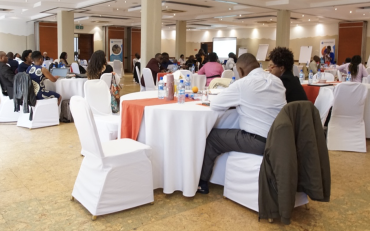In late May 2022, the International Disability Alliance (IDA), in partnership with the African Disability Forum (ADF), the Inclusive Futures consortium, and the United Disabled Persons of Kenya (UDPK), hosted a workshop in Nairobi, Kenya, that brought together persons with disabilities, international NGOs, governments, donors and private sector partners to discuss what is needed to equalize access to employment for persons with disabilities in the open labor market.
The workshop was organized in the backdrop of the Inclusive Futures employment program coming to an end in June. This is a 3-year UK Aid funded program that focused on how people with disabilities can have enhanced access to and be better included in formal waged employment. The sessions, reflective in nature, had participants sharing how various interventions had worked to support systemic change in the labor market, which made it more inclusive for workers with disabilities.
“Placing individuals with disabilities into jobs does not create sustainable inclusive employment, so what else should be done?” was a key question addressed.
Discussions following from this revolved around how inclusive employment has to consider holistic transformation processes of employment as a system: recruitment processes that address barriers faced by persons with disabilities, workplaces that are accessible, employers that understand the added value of diversity in the workplace and promote positive attitudes, career development strategies and support for jobseekers with disabilities, as well as supportive employment laws and policies informed by data.

Workshop on Access to Employment and Inclusive Programming, Kenya (2022)
“Retrofitting jobs that were not designed to be inclusive does not work. You need to think about jobs being inclusive from scratch, especially for underrepresented groups of persons with disabilities,” said Kimber Bialik, the Director of Programs and Network Development with Inclusion International.
Central to the discussion was the question of how all groups of persons with disabilities can access the open labor market and the recognition from participants that many groups of persons with disabilities are out of decent work. Underrepresented groups face even greater marginalization and exploitation at work.
For example, a study by Down Syndrome International in Bangladesh showed that employees with intellectual disabilities were sometimes paid less than 25% of the wage of a person without an intellectual disability, doing the same job.
In Kenya and Nigeria, a study by Inclusion International showed that some people with intellectual disabilities are only being paid 1/10th of the standard wage. In addition, persons with disabilities often face segregated work settings where they are employed separately from others, sometimes with exemptions from labor standards and not adhering to minimum wage requirements.
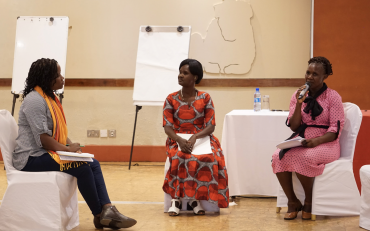
A speaking panel with Dorothy Nakato (WNUSP), Agnes Abukito (NADBU), and Elizabeth Ombati
“Persons with deafblindness are not aware of the existence of job opportunities on the market because jobs are being advertised in inaccessible formats. In Uganda, no jobs are advertised in an accessible manner, people use radio or billboards which are inaccessible, therefore we don’t know about opportunities,” said Agnes Abukito, a woman with deafblindness who had carried out a study on the status of persons with deafblindness in the open labor market.
To challenge this situation, participants exchanged learning and good practices to work on the whole employment system and transform practices, addressing the missing link between employers and jobseekers, and ensuring rights-based approaches for persons with disabilities to access the job they want and get paid a fair wage.
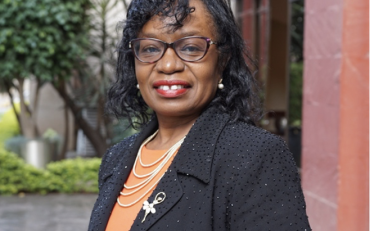
“To organizations that are thinking about inclusive employment, we will say learning starts from where you are. Don’t look at others and be discouraged, just take the first step and hire that one person with a disability. It is a journey and to be successful you will need to have leadership buy-in, in order to get the right resources and support,” said Tabie Kioko, Senior Manager of Diversity and Inclusion at Safaricom PLC.
Tabie Kioko
The Inclusive Futures employment program mobilized the private sector as allies in this direction. Industry leaders in different countries are now committing to support this urgent call to ensure workplaces are inclusive of persons with disabilities. Through Business and Disability Networks established as national platforms convening businesses, OPDs and other development partners, a growing number of private companies, are leading the way.
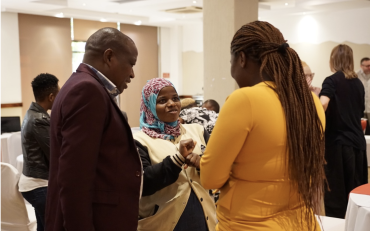
Betty Najjemba speaking with other participants
“Unilever, Safaricom, and Coca Cola are partners who made commitments to become disability-inclusive, which can now motivate other employers to become disability inclusive,” said Betty Najjemba, the ADF Organizations of Persons with Disabilities Engagement Officer.
The Inclusive Futures employment program is a consortium of 11 organizations and implemented in four countries – Bangladesh, Kenya, Nigeria, and Uganda. IW engaged a wide group of stakeholders to test models of inclusive employment practice and generate robust evidence and data which can be used to influence change at a national, regional, and global level.
The program approached the supply side by doing job training, so that job seekers had skills and confidence and approached the demand side by working with employers to support capacity and commitment for inclusion in the workplace. The program also worked with governments, civil society, and Organizations of Persons with Disabilities to strengthen the collaboration.
Lianna Jones, the Program Manager of Inclusive Futures employment program at Sightsavers, noted that the program has worked with more than 2,300 jobseekers with disabilities and that 22% of these jobseekers have succeeded in finding jobs.
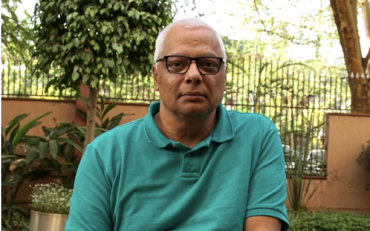
Shuaib Chalklen, Executive Director of ADF
“The [Inclusive Futures employment program] is coming to an end but has been an important and successful program and we have to look at the way forward. Keep holding the system accountable. Africa is large, 54 countries and we worked only in four. Unemployment rates of persons with disabilities are high in many countries. So, for us, the [Inclusive Futures employment program] is a small component of a broader approach to improve our lives, alongside social protection, cash transfers, self-employment, access to microcredit,” said Shuaib Chalklen, Executive Director of ADF.
